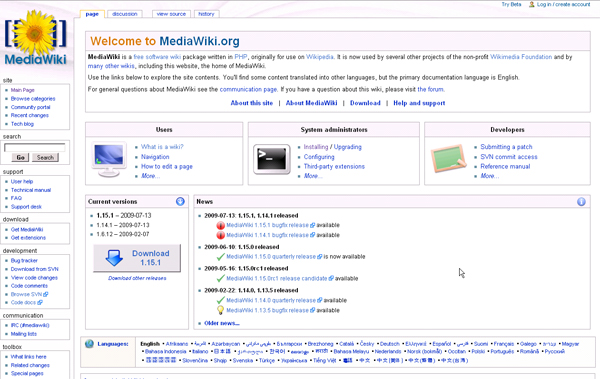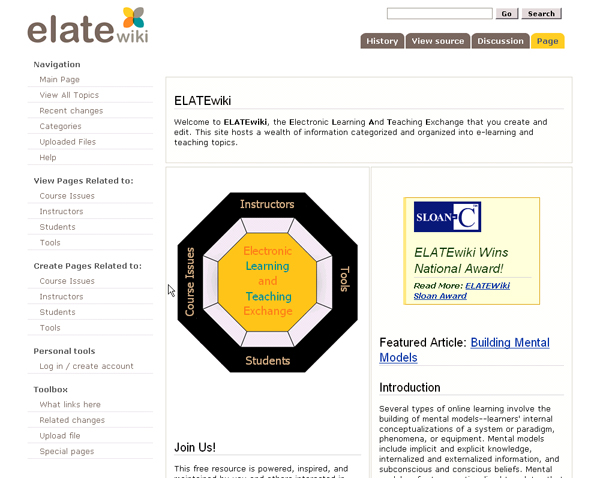Wikis are a kind of software that promotes knowledge-sharing among distributed contributors with Net access. This software allows virtually anyone to post textual information, photos, sound files, video files, and other multimedia contents to a site, which is available globally. The contents of a wiki are searchable and accessible. The contents in a wiki, if named properly and linked intelligently, are highly navigable. An automatic “Contents” is created at the level of an entry page and then at the wiki level, to make the contents more easy to peruse and access.
The interface for editing contents may seem awkward to some, and it may take some getting used to. Some directions are available at www.mediawiki.org/wiki/Help:Editing_pages.
One of the strongest aspects of wikis is the ability to revert a page to its prior state. The openness of a wiki is balanced against the system-operator ability to undo vandalism or inappropriate postings. Core pages may also be locked down to prevent editing by users who lack permissions. Wikis may be mediated by “wiki masters” in different locales as long as they have the proper levels of account access and user authentication.
A wiki may be branded with the inclusion of logos and different types of look-and-feel aesthetics.
Another major strength is the ability to add third-party extensions and functionalities in a modularized way. For example, MediaWiki (see below) has add-ons that allow for many-language translations from English. There are ways to add in embedded text for video links.
One open-source tool that is the underpinning for Wikipedia is MediaWiki, available at www.mediawiki.org/wiki/MediaWiki. This page has tips for wiki users, system administrators (or “system operators,” a.k.a. sysops), and developers (those who would develop code and other add-on functionalities to the MediaWiki code).
MediaWiki offers plenty of user-friendly functions for the management of knowledge, and the support of communities of practice (CoPs) and networks of practice (NoP) — groups that collaborate and form around shared interests and knowledge.
Those who need protected, in-house wikis to collect and share information (for institutional memory and daily functioning) may use MediaWiki on a protected intranet.
The most current version of MediaWiki is 1.15.1, which was released in July. This is not a hosted solution, which means that users must place this software on their own servers and maintain it. The use of the software is free.
Popular wikis include these and more:
- A publicly edited encyclopedia (Wikipedia at www.wikipedia.org)
- A dictionary (www.wiktionary.org)
- An evolving thesaurus (dev.wikipedia-lab.org/WikipediaThesaurusV2)
K-State has the E-Learning and Teaching Exchange (ELATEwiki), which was co-developed by the Division of Continuing Education, the Information Technology Assistance Center (iTAC), and the Office of Mediated Education (OME), with Roger McHaney as the wiki keeper.
All are welcome to use the contents, and all are welcome to contribute. This is available at www.elatewiki.org.

